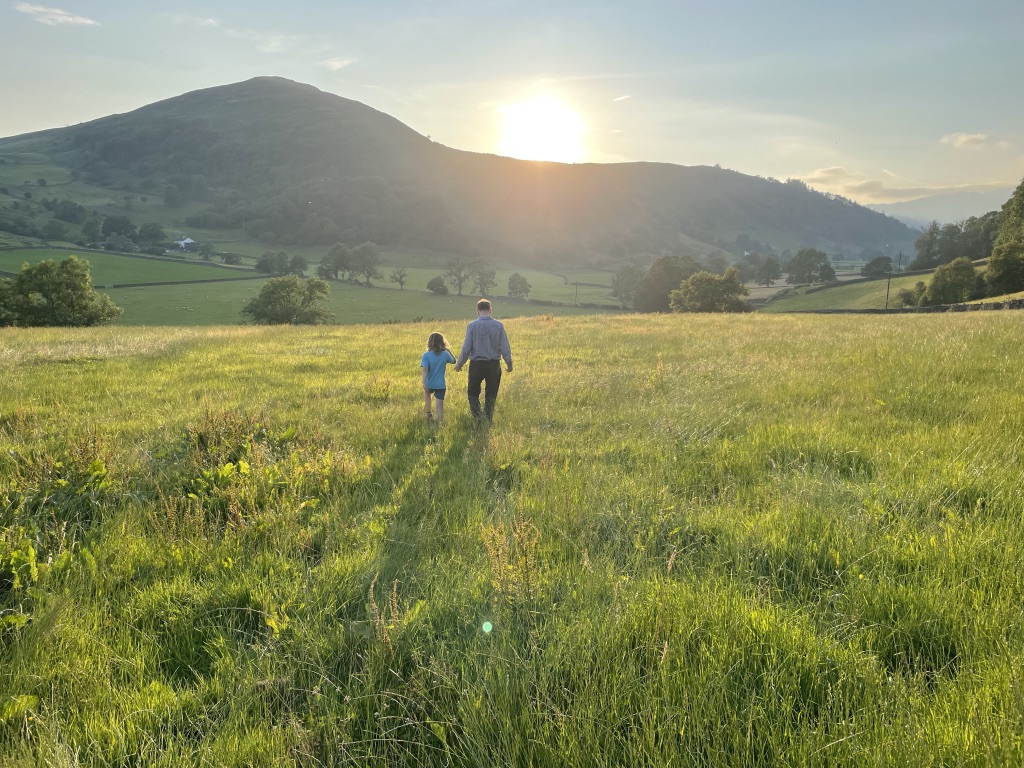People and Land
Human well-being & the Wilderculture Approach
One of the defining features of the Wilderculture Approach is that we recognise not just the negative environmental consequences that result from decision making solely based on profit, but also the negative social consequences. Depression and suicide are well known to be high in the farming community.
That is why with the Wilderculture Approach one of the most important conversations we will have with you is about what you want and don’t want for yourself, your family, community and land.
We will guide you and your team in creating your context, a framework from which to check your decision making to ensure it is aligned with your vision and values.

Vision and values
Let’s reconnect to the land
Studies show that happiness arises when we work towards goals which are in alignment with our values. So as part of the social context of your operation we will ask you what gets you out of bed in the morning, what gives you pride, what do you want to see in your landscape?
We will also look at what your aspirations might be in the way of how you feel you want to contribute to the wider community? How do you want to see your operation grow for future generations?
We know from many anecdotal accounts from farmers that the well-being of the land and animals is not separate from the well-being of those who work with them. Wild, alive landscapes and happy animals create happy people as well as excellent, nutrient dense foods.
Context Mapping
The context map will act as a guide when making management decisions. It will inform annual goals, a practical working document detailing the specific steps the team will take to start working towards your regenerative goals.
Regenerative Goals
From your vision for the farm through your context mapping, we can create your regenerative goals. These goals can form part of the requirements for the contract farming agreement.
Inter-generational Resilience
We will guide you to build the soil and solar ‘bank’ on your farm so that your operation has long-term financial viability and resilience. This is the best thing we can do for the next generation.
Decision Making
A way of making decisions that are in line with your vision. We will teach you a framework to test that your decisions are always moving you towards your goals.
Define your decision makers
To make good decisions, we need to understand who else may influence the choices we make. Ignoring those with influence over your farm can lead to a decision later being derailed causing unnecessary tension in relationships.
What Inspires You?
What excites and inspires you about the potential for your land? What do you want people to say about you and the property when you retire? These are some of the questions we ask in the Wilderculture Approach to help you create your farm context.

Our environment
Seven Generation Stewardship
For the largest part of our 2-million-year human existence we have been fully immersed in wild nature. In only the last couple of generations people have become disconnected from land and our lives have suffered as a result; high rates of disease, depression and dysfunction are symptoms of feeling we no longer belong to ‘the environment.’
We simply cannot know how to best protect ‘our’ environment or properly nourish our well being if we have lost the ability to understand the language of the land.
Many Indigenous cultures, in particular in North America, speak of our thinking in terms of 7 generations. There seem to be two different interpretations of this idea. One is that we all have the possibility of knowing and being known by 7 generations, our great-grandparents, grandparents, parents, then our children, grandchildren and great-grandchildren. Together we make up a line of 7 closely connected generations, with each of us having the possibility of occupying every place in that line.
The second interpretation takes the view of the great-grandparent looking down that line, 7 generations to the great-grandchild, with the desire that their inheritance will be safe guarded. That they might find the earth in a condition that will support a good life.
Both views on 7 generation stewardship help us to stop thinking so much about short-term profit and instead long-term viability and prosperity of our land, families and communities.

